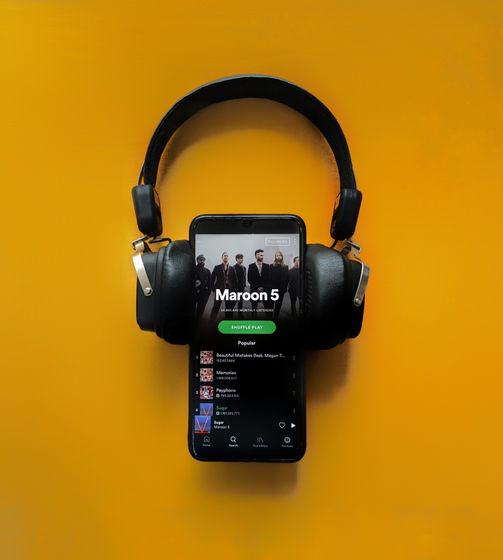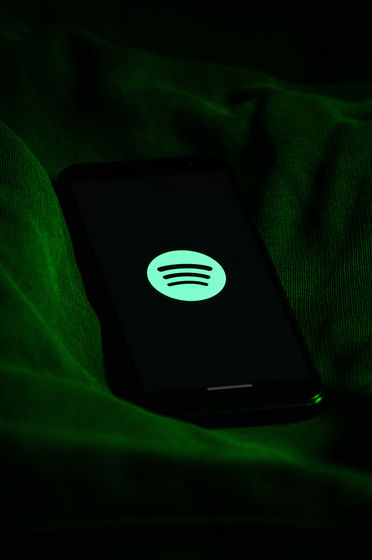Spotify announces a new royalty system, allowing monetization by ``1000 plays in the past 12 months'' and ``song lengths of at least 2 minutes for some genres''

Music streaming service
Modernizing Our Royalty System to Drive an Additional $1 Billion toward Emerging and Professional Artists – Spotify for Artists
https://artists.spotify.com/blog/modernizing-our-royalty-system

Spotify's new royalty scheme picks the winners - The Verge
https://www.theverge.com/2023/11/21/23971616/spotify-royalties-labels-streaming-fraud-pushkin-malcolm-gladwell
The amount paid by Spotify to the music industry continues to increase, and the amount exceeds 40 billion dollars (about 5.9 trillion yen). Still, Spotify wants to make sure money goes to all artists, and has announced updates to its royalty system to that end.
Spotify is working closely with industry partners (artist distributors, independent labels, major labels, label distributors, artists and their teams) to 'eradicate synthetic streaming' and 'better address small-scale streaming. We will introduce new policies to ensure artists are paid properly and to curb people who try to manipulate the system with noise. By implementing these three measures, it will be possible to generate an additional approximately $1 billion (approximately 150 billion yen) in revenue for artists over the next five years.

The three problems raised by Spotify are as follows.
◆Eradicate artificial streaming
Starting in early 2024, labels and distributors will be required to pay a fee per song if malicious artificial streaming (inflating the number of plays using automated bots, etc.) is detected. This follows on from new detection technology developed by Spotify to detect malicious artificial streaming, and the newly formed
Spotify says, ``The industry would be better off if we could disincentivize bad artificial streamers in the first place.'' We believe we can meaningfully stop bad actors from continuing to distribute their music. Funds collected in fines for detecting artificial streaming will be used to protect the industry and platforms from human activity. It will be used to support ongoing efforts.'
◆ Introducing new policies to better handle small-scale streaming
Spotify hosts over 100 million songs, tens of millions of which have been played over 1,000 times in the past year, generating an average revenue of $0.03 (about 4.5 yen) per month. Labels and distributors require a minimum withdrawal amount of $2 to $50 (approximately 300 to 7,400 yen), and banks charge a transaction fee of $1 to 20 (approximately 150 to 3,000 yen), making it difficult for the revenue earned from Spotify to be Apparently there are many artists who cannot afford it. The total amount of revenue that does not reach artists due to various fees seems to be as much as 40 million dollars (about 5.9 billion yen) a year.
Therefore, Spotify has announced that starting in early 2024, revenue distribution will be limited to ``songs that have been played at least 1,000 times in the past 12 months.'' Spotify seems to want to distribute the $40 million in annual revenue, which is floating in the air without reaching artists, to more artists.
In fact, Spotify points out that 99.5% of songs on Spotify are played at least 1,000 times a year, so raising the hurdle for monetization will only affect a small number of artists. Spotify claims that since the hurdle for monetization has been changed to ``a minimum of 1,000 plays,'' it will also help eliminate malicious methods such as ``music uploaders uploading a large number of low-quality songs and earning small change.'' Did.

◆ Suppressing people who try to manipulate the system with noise
Genres such as white noise, whale sounds, and static are also popular on music streaming services. Listeners may stream these genres for hours a day. It seems that some uploaders are taking advantage of this, lowering the length of their songs to the minimum required for monetization, artificially increasing the number of plays, and trying to increase their revenue. For example, some malicious uploaders seem to intentionally generate high profits by shortening whale sounds to 30 seconds. As a result, people who upload noise have a much better earning opportunity than regular artists.
It is reported that ``a podcast that plays white noise without speaking a word'' is making a huge profit on Spotify - GIGAZINE

Therefore, Spotify has announced that the minimum requirement for monetization will be increased from ``30 seconds minimum'' to ``2 minutes minimum''. However, this only applies to noise-related genres such as white noise, natural sounds, mechanical noises, sound effects, non-voice ASMR, and silence. In addition, Spotify plans to change its rating for noise-related streaming at a fraction of the price of regular music streaming in the coming months.
Related Posts:
in Web Service, Posted by logu_ii






